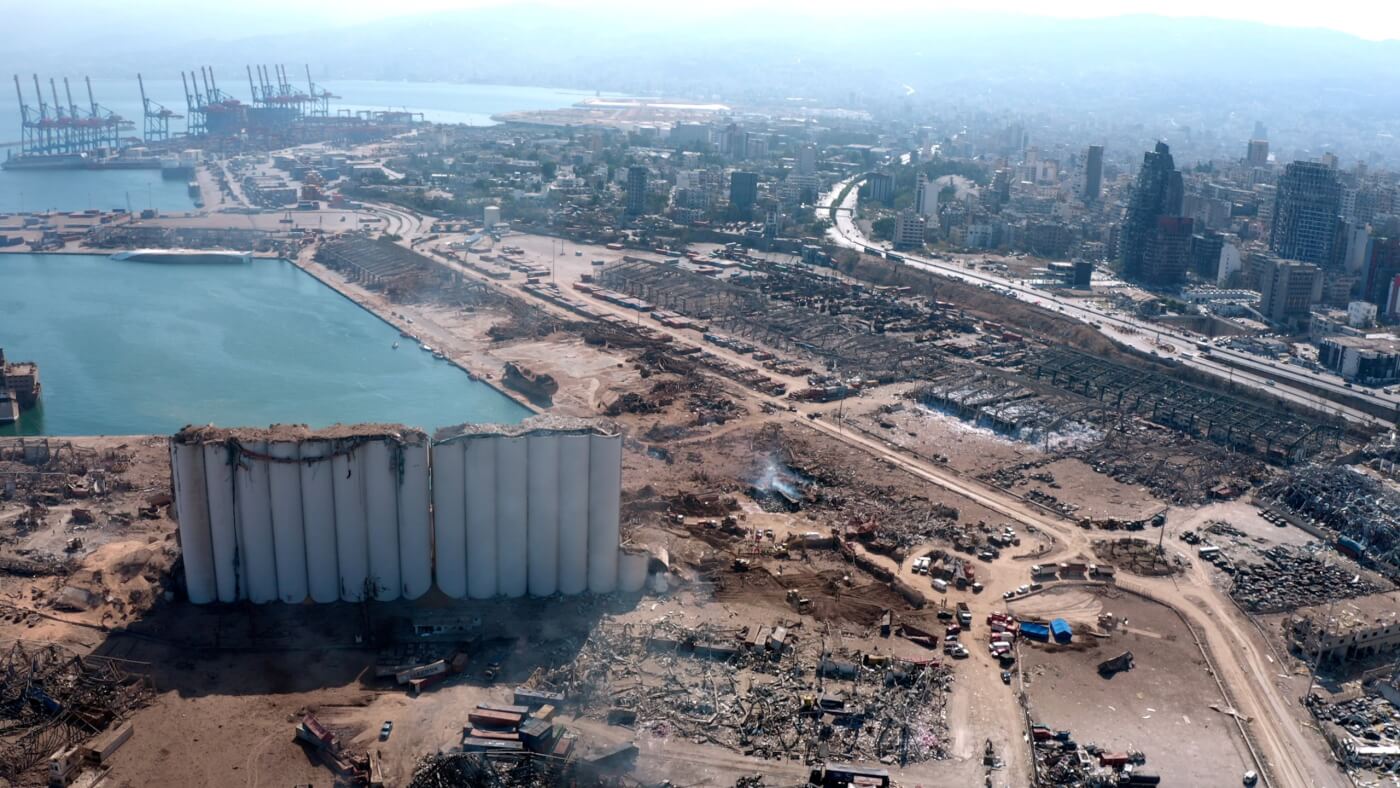On 6 August in Beirut protesters clashed with Lebanese security forces at anti-government demonstrations as officers deployed tear gas on dozens of people near the parliament. Demonstrators were angered by the utter devastation of the port of Beirut and surrounding city area following Tuesday’s massive explosion caused by 2,750 tonnes of ammonium nitrate being stored unsafely there since 2013.
The explosion killed at least 150 people and more than 5,000 were injured. The death toll is expected to rise as rescue workers keep digging through the rubble.
“What do you want me to say?” a woman named Hilda, inspecting the wreckage of her gift shop, told the Lebanese broadcaster LBCI. “There’s nothing left of the neighbourhood, not just our store.”
She added:
“I won’t rebuild in this country. They [the politicians] had left us our work and homes – and now they’re gone. If something changes, we’ll rebuild. If not, then I won’t. Let them rebuild.”
The demonstration on Thursday night, as well as a flood of angry social media posts, suggested the disaster could reignite a cross-sectarian protest movement that erupted in October but faded because of the grinding economic hardship and the coronavirus pandemic. Many have raised questions as to how a huge cargo of highly explosive ammonium nitrate could have been left unsecured in the capital for years.
The protests continued on 7 August with thousands of protesters gathered in central Beirut, Tripoli, Zouk Mikhael, Tyre and other locations, accusing the political leadership of corruption and calling for social and economic reforms.
“The level of devastation in Beirut is incomprehensible, and the responsible authorities should be held accountable,” said Aya Majzoub, Lebanon researcher at Human Rights Watch, in a statement.
Since the disaster two officials have resigned. MP Marwan Hamadeh stepped down on Wednesday, while Lebanon’s ambassador to Jordan, Tracy Chamoun, announced her resignation on Thursday, saying “total negligence” by the country’s authorities signalled the need for a leadership change.
“I am announcing my resignation as an ambassador … in protest against state negligence, theft and lying,” said Ms Chamoun. “This disaster rang a bell: we should not show any of them mercy and they all must go. This is total negligence.”
Also on Thursday, as the first world leader to visit since the explosion French President Emmanuel Macron called for “profound change” from Lebanon’s leadership following the deadly port blast. He also called for an international investigation
“to prevent things from remaining hidden and doubt from creeping in”.
Amnesty International and Human Rights Watch are also calling for an international, independent investigation.
Many countries, including France, Canada, the United Kingdom, and Qatar, have already pledged assistance.
France – the former colonial power in Lebanon – has sent three planes carrying rescuers and medical kit to Lebanon, with a fourth arriving later and a French navy helicopter carrier carrying French investigators and further supplies due to arrive next week.
The day after the blast, the UK offered to immediately deploy search and rescue experts with specially trained dogs to help find those caught up in the blast. Britain will also give Lebanon £5 million in emergency humanitarian funding available to help people made homeless by the disaster.
Foreign Secretary Dominic Raab said:
“This was a devastating explosion which has caused enormous suffering and damage. The UK is a long-standing friend of Lebanon and the Lebanese people, and will stand with them in their hour of need.”
The President of the European Council, Charles Michel, has said he will travel to Beirut on Saturday
“to convey Europe’s solidarity with the people in Lebanon”.
He said he would meet President Michel Aoun, Prime Minister Hassan Diab, and the Speaker of Parliament, Nabih Berri.
Lebanon recorded 255 coronavirus cases on Thursday – its highest single-day infection tally – after the explosion upended a planned lockdown and sent thousands streaming into overflowing hospitals.
“We can’t bear more than this. This is it. The whole system has got to go,” 30-year-old Mohammad Suyur, told The Guardian.
Even before the disaster, Lebanon’s hospitals were already struggling to cope with a rise in Covid-19 infections. The country is also going through the worst economic crisis since the 1975-1990 civil war, and was seeing regular anti-government street protests. People were having to deal with daily power cuts, a lack of safe drinking water and limited public healthcare.

